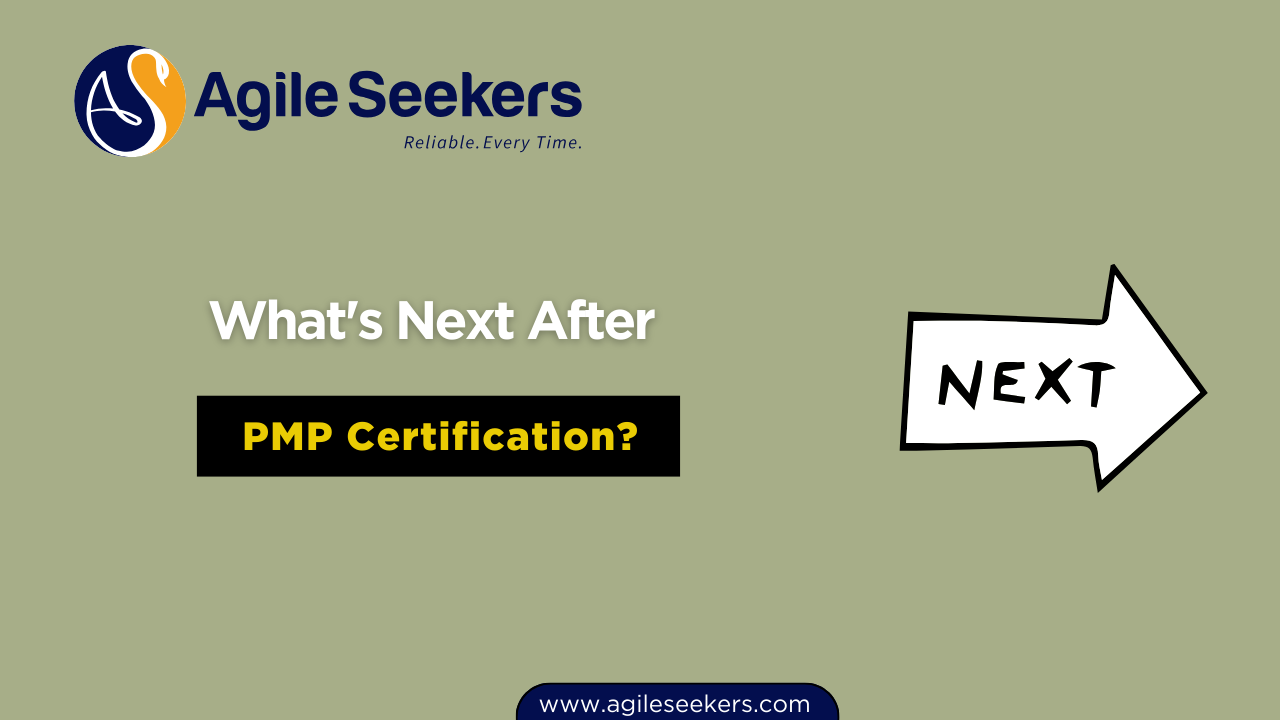What’s Next After PMP Certification? Career Paths, Skills, and Growth Strategies

You’ve earned your PMP certification. That’s a major achievement. Now what? While this certification opens many doors, your career journey doesn’t stop here. In fact, it's just beginning. Let’s explore your next steps, whether you want to sharpen your project management skills, climb the leadership ladder, or pivot to a new domain.
1. Expand Your Skill Set
Passing the PMP exam proves you know how to manage projects using best practices. But project environments keep evolving. That’s why you should build complementary skills. Consider improving in areas like:
- Agile and Scrum: More organizations are adopting Agile methods. Getting certified in Scrum or SAFe frameworks adds value to your profile.
- Leadership and Communication: PMP teaches project planning. To lead complex projects, you need influence, negotiation, and stakeholder engagement skills.
- Data Analysis and Tools: Learn tools like Power BI, Excel dashboards, or MS Project to strengthen reporting and forecasting abilities.
2. Choose a Specialization
Project managers often specialize in specific industries or methodologies. Here are a few directions to consider:
- IT Project Management: Demand is high for PMs who understand IT delivery, cloud migration, and cybersecurity initiatives.
- Construction & Infrastructure: If you’re in this sector, deepen your knowledge of contracts, procurement, and risk in large-scale physical projects.
- Agile Project Management: Organizations are shifting to hybrid or Agile models. Certifications like PMI-ACP or SAFe POPM can help you stay relevant.
Explore PMI’s specialization certifications like PgMP or PfMP depending on your interest in program or portfolio management.
3. Move Toward Program or Portfolio Management
PMP focuses on individual project execution. As you gain experience, consider stepping into program or portfolio roles. These positions involve managing multiple related projects, aligning them with business strategy, and delivering large-scale value.
- Program Manager: Oversees a group of related projects and ensures strategic alignment.
- Portfolio Manager: Manages project investments at an organizational level to meet long-term objectives.
These roles demand a blend of technical, financial, and leadership capabilities. Getting hands-on experience and advanced certifications like PgMP can support this transition.
4. Gain More Experience and Take Strategic Projects
Use your PMP certification to lead larger, more complex projects. Look for initiatives with strategic business impact. Volunteer for cross-functional projects or global teams. The more complex your project environment, the faster you’ll grow.
Keep documenting your project outcomes. These experiences will help you apply for senior roles or build a consulting portfolio.
5. Explore Agile Certifications
If your organization is adopting Agile or hybrid frameworks, getting certified in Agile practices is a smart move. Popular certifications include:
- PMI-ACP (Agile Certified Practitioner)
- SAFe POPM (Product Owner/Product Manager)
- ICP-ACC (Agile Coach Certification)
Agile knowledge helps you work effectively with Scrum teams, product owners, and digital transformation projects. Agile PMs are increasingly in demand across industries.
6. Mentor or Coach Junior Project Managers
Helping others develop their careers is a powerful way to reinforce your own expertise. Join internal mentorship programs or coach new PMP aspirants. You could also contribute to community forums or local PMI chapters.
Mentoring sharpens your leadership, empathy, and teaching skills—all of which are critical for senior project roles.
7. Consider a Lateral Shift to Business Roles
Some PMP-certified professionals use their experience to move into roles such as:
- Product Manager – Own the product roadmap, define features, and work with cross-functional teams.
- Business Analyst – Translate business needs into technical requirements and support project delivery.
- Operations Manager – Focus on process improvement and delivery efficiency across functions.
Your PMP background gives you strong fundamentals in stakeholder management, planning, and execution—skills valued in many business-facing positions.
8. Keep Your PMP Certification Active
To maintain your certification, you must earn 60 PDUs (Professional Development Units) every three years. You can do this by:
- Attending seminars, webinars, and training programs
- Volunteering with PMI or teaching project management
- Reading books, writing blogs, or contributing to knowledge-sharing activities
AgileSeekers offers PMP training and refresher sessions that count toward your PDUs. This helps you stay certified and stay current.
9. Explore International Opportunities
PMP is globally recognized. If you’re interested in working abroad, this certification gives you a competitive edge in markets like the Middle East, Europe, North America, and Australia. Multinational companies actively seek PMP-certified professionals for managing large-scale or global projects.
Update your LinkedIn profile and resume, highlight your certification, and start networking with global recruiters or expat professionals.
10. Build a Personal Brand
In a competitive field like project management, your reputation matters. Start by:
- Publishing content on LinkedIn or Medium
- Speaking at meetups or webinars
- Creating a project management portfolio website
This helps establish you as a thought leader and creates visibility for new roles, freelance consulting, or training gigs.
Final Thoughts
Getting your PMP certification training was a major milestone. Now, use it as a springboard to lead bigger projects, specialize in areas that excite you, or guide the next generation of project managers.
Your journey doesn’t end with PMP—it evolves with every new challenge you take on. Whether you aim to become a program leader, Agile coach, or digital transformation expert, the future is full of possibilities.




















